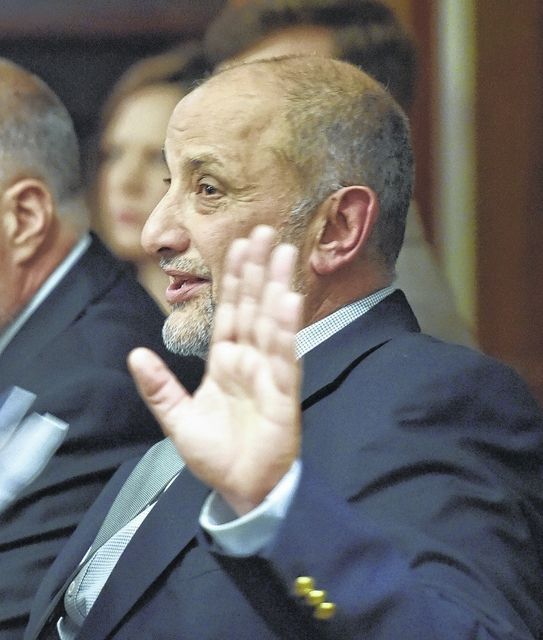Click here to subscribe today or Login.
WILKES-BARRE — The city’s financial consultant painted a bleak picture Tuesday night of multimillion-dollar deficits within the next five years if nothing is done to increase revenues and control expenses.
But that’s not likely to happen, if judging only by the fact the city hired The PFM Group as part of its participation in the state’s Early Intervention Plan to assist municipalities facing financial difficulties. The city received a $60,000 grant from the state and will contribute the remaining $15,000 to pay PFM.
Gordon Mann, director of Philadelphia-based PFM, put the role of the city front and center as he presented a draft look at the city’s finances and offered baseline projections through 2021.
“Government doesn’t exist to make money,” Mann said. “What government does is it provides services to people.”
But without sufficient finances, he reminded council, Wilkes-Barre will not be able to provide police and fire protection, garbage pickup, and the rest of the services expected by the residents and general public.
PFM, which played a similar role in the city in 2004 before the state Department of Community and Economic Development introduced the intervention plan, is halfway through its a four-part program to review the numbers and come up with recommendations to strengthen the finances.
“The baseline projection has one basic concept behind it, which is, ‘What happens if we do nothing?’” Mann said.
The projection assumed no cut in services and no property tax increase beyond the 30 mills proposed by Mayor Tony George next year in his $47.9 million balanced budget.
Even with that hike, PFM projected there would be small deficit of $256,077 in 2017 that will balloon to $4.6 million the following year. It will keep increasing as revenue growth remains stagnant and expenses for salaries, health benefits, debt service and pensions mount.
The deficit trajectory, according to PFM, is:
• $5.9 million in 2019.
• $6.7 million in 2020.
• $7.5 million in 2021.
In 2015, the city recorded a deficit of $1.2 million. But it tapped its reserves, leaving a reserve balance of $5.4 million that will remain unchanged this year if the $51.5 million balanced budget of former Mayor Tom Leighton holds.
As the deficit increases, the city’s reserve fund depletes by 2019, according to PFM.
Mann pointed out the city’s payment for long-term debt or previous bond issues to cover expenses and projects will drop next year to $5.3 million from the $8 million budgeted. But the decrease is temporary.
“In (2018) it goes up to around $7 million, and it stays there for the next decade,” he said. “It’s $7.4 million until 2027 when it drops to $3.5 million. So that’s a big number.”
The city also is paying out revenues to cover legacy costs such as pensions of retired employees and capital projects. “About $1 of every $4 goes to yesterday,” Mann said. “So it’s not available for today, and it’s not available for tomorrow. That’s a big percentage.”
David Unkovic, of the law firm McNees Wallace and Nurick that’s assisting PFM, suggested some potential cost-control measures for the city to examine, including outsourcing, subcontracting, and reviewing its organizational structure and purchasing procedures.
The final recommendations won’t come until next year, Mann added, after city council has time to digest the introductory projections.
“Don’t despair,” Mann told council. No decisions have to be made immediately, he said. “We do have some time.”





